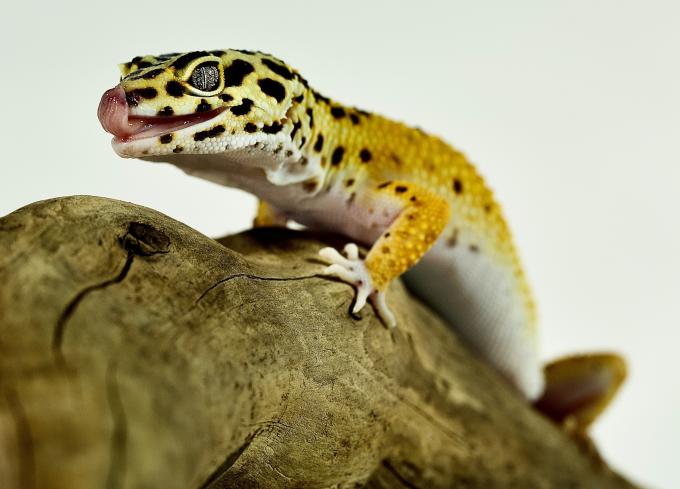Every reptile species will have different nutritional needs and feeding schedules. A snake will not eat like a tortoise does, they will have different needs and will therefore eat differently.
If you are wondering what do leopard geckos eat, you’re in the right place.
But, first you really need to know whether your reptile is a carnivore, insectivore, herbivore or omnivore. Reptiles have varying diets and while some reptiles will have a diet that consists primarily of meats, some may have a diet that is mostly insects and foliage.
Hydration
Water is the most important nutrient of all. There should never be anything more important than a clean and easy to access source of water. You should ensure that your reptile gets their water changed every day, or even more often if they have defecated and urinated in it.
You should also ensure that water containers are disinfected on a weekly basis as well. Reptiles should have a large and swallow dish in which they can soak and urinate/defecate in.
This is because a great deal of reptiles need to soak in order to properly shed their skin. However, you need to ensure that the bowl is easy to exit as well to prevent drowning.
There are a few lizards, chameleons are one of these, who don’t drink from a bowl, instead, they have to have a mist sprayed on the plants in their cage.
Alternatively, you could use a pin to create a small hole in a plastic or paper cup then fill it and leave it in their cage at the top. If you do this, allow the water to drip onto leaves, but also use a bowl or another cup to catch the excess water, so it doesn’t soil the environment of the cage.
Carnivorous Reptiles
There are many carnivorous reptiles, snakes are a great example of this. They are the easiest to give a balanced diet to. In the wild they will usually eat whole animals. Luckily carnivorous reptiles often have the fewest nutritional problems if they are fed prey whole.
A carnivorous reptile should be fed frozen and thawed, or freshly killed prey animals. If you need to thaw the meat then seal them in a zip-lock bag and place it in water to a temperature slightly warmer than the normal body temperature of the prey animal.
Only once the food is thawed can it be given to your reptile.
Snakes will be able to detect temperature, so thawed prey at the right temperature may even help a reluctant snake to eat.
Do not feed vertebrate prey to your reptile as it increases the chance of injury. Always ensure prey animals are clean and free of disease or infection before feeding them to your reptile.
Insectivore Reptiles
A majority of lizards will be insectivores. A majority of insects that are fed to pets are not great nutritionally, but you can supplement these nutrients by ensuring that the insects have a fantastic diet.
Maximize their nutritional worth for your reptile through the contents of the insect's intestines.
Inch worms, mealworms, crickets, and wax worms are all often fed to reptiles. You need to ensure that these are given a medium that has high calcium to feed these insects to your reptile.
However, it is still recommended that you dust the insects with calcium and vitamins to ensure full health for your reptile.
Vitamins will need to include vitamin D3, but calcium supplements should not include any extra vitamin D, or phosphate. Too much vitamin D will cause calcification to soft tissues, and adding phosphorus will make their bones soft.
Herbivorous/ Omnivorous Reptiles
If your reptile needs a diet that makes them a herbivore or omnivore they will need to have a diet with leafy greens.
Herbivores should have a diet with dark leafy greens and then, 10% of their diet should be fruits and vegetables. Some large herbivorous tortoises need diets high in fiber, this can be given through fresh grass and hay. As long as it is herbicide and pesticide free.
Herbivores and omnivores will need protein as well. You can include a hard-boiled egg that is brushed, pinkies, tofu, or white means. You can use dog food in small amounts, but you should not overuse this.
Herbivores need 90 to 98% of their calories to come from plant based foods. A young herbivore should get 70 to 95% of their calories from plant foods.
Do not feed animal proteins to herbivores as it increases the risk of kidney disease.

